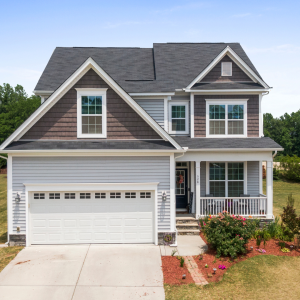
Key Factors Contributing to a Successful Home Sale
Several factors can contribute to why some properties sell faster than others. Here are some key reasons:
Location:
Properties located in desirable neighborhoods with good schools, convenient access to amenities, low crime rates, and proximity to employment centers tend to sell faster. Location is one of the most significant factors influencing buyer demand and willingness to pay.
Price:
Properties priced competitively relative to their market value are more likely to attract interest from buyers and sell quickly. Overpriced properties may sit on the market for longer periods, while underpriced properties may receive multiple offers and sell rapidly.
Condition and Presentation:
Well-maintained properties that are clean, updated, and staged to showcase their best features tend to sell faster than those in poor condition. First impressions matter, and buyers are more likely to be attracted to properties that are visually appealing and move-in ready.
Marketing and Exposure:
Properties that are effectively marketed and exposed to a wide audience through professional photography, online listings, open houses, and social media promotion are more likely to generate interest and sell quickly. A comprehensive marketing strategy helps reach potential buyers and creates a sense of urgency.
Market Conditions:
The overall state of the real estate market, including supply and demand dynamics, interest rates, economic conditions, and local trends, can influence how quickly properties sell. In a seller’s market with high demand and limited inventory, properties tend to sell faster, whereas in a buyer’s market with more inventory and less demand, properties may take longer to sell.
Accessibility for Showings:
Properties that are easily accessible for showings and flexible with scheduling appointments are more likely to attract interested buyers and receive offers quickly. Sellers who are accommodating and responsive to buyer inquiries and showing requests can expedite the selling process.
Seller Motivation and Flexibility:
Sellers who are motivated to sell and willing to negotiate terms, such as price, closing timeline, and contingencies, may attract more serious buyers and facilitate faster transactions. Flexibility on the part of the seller can help overcome obstacles and streamline the selling process.
Unique Features or Amenities:
Properties with unique features, desirable amenities, or specific attributes that cater to niche markets may sell faster than comparable properties without these distinguishing characteristics. Buyers are often willing to pay a premium for properties that offer something special or meet their specific needs.
Overall, a combination of factors, including location, pricing, condition, marketing, market conditions, accessibility, seller motivation, and property features, can influence how quickly a property sells. By addressing these factors effectively, sellers can increase their chances of selling their property in a timely manner and achieving their desired outcome.
Here are four more things you may want to take in to consideration when selling a home:
Demand:
Demand refers to the desire or need for a particular property within a given market. By understanding demand, sellers can identify the types of properties that are in high demand and tailor their marketing efforts accordingly. This knowledge allows sellers to focus on properties that are likely to attract buyers, increasing the chances of a successful sale. Additionally, understanding demand helps sellers set competitive pricing strategies that reflect the perceived value of the property to potential buyers.
Utility:
Utility refers to the usefulness or value that a property provides to potential buyers. Sellers who understand the utility of their properties can highlight their unique features and amenities that appeal to buyers’ needs and preferences. By emphasizing the utility of the property, sellers can effectively showcase its value proposition and differentiate it from competing listings. This can attract more interested buyers and increase the likelihood of a successful sale.
Scarcity:
Scarcity refers to the limited availability of properties within a particular market. Properties that are scarce or in high demand relative to supply tend to command higher prices and attract more interest from buyers. Sellers who understand the concept of scarcity can leverage it to their advantage by creating a sense of urgency among potential buyers. By highlighting the unique attributes or limited availability of their properties, sellers can generate increased interest and competition, leading to faster sales and potentially higher
offers.
Transferability:
Transferability refers to the ease with which property rights can be transferred from one party to another. Properties with high transferability are more desirable to buyers because they offer clear and secure ownership rights. Sellers who understand transferability can streamline the sales process by ensuring that all necessary documentation and legal requirements are in order. This helps build buyer confidence and reduces the risk of delays or complications during the transaction. Additionally, properties with good transferability are more likely to retain their value over time, making them more attractive to potential buyers.
